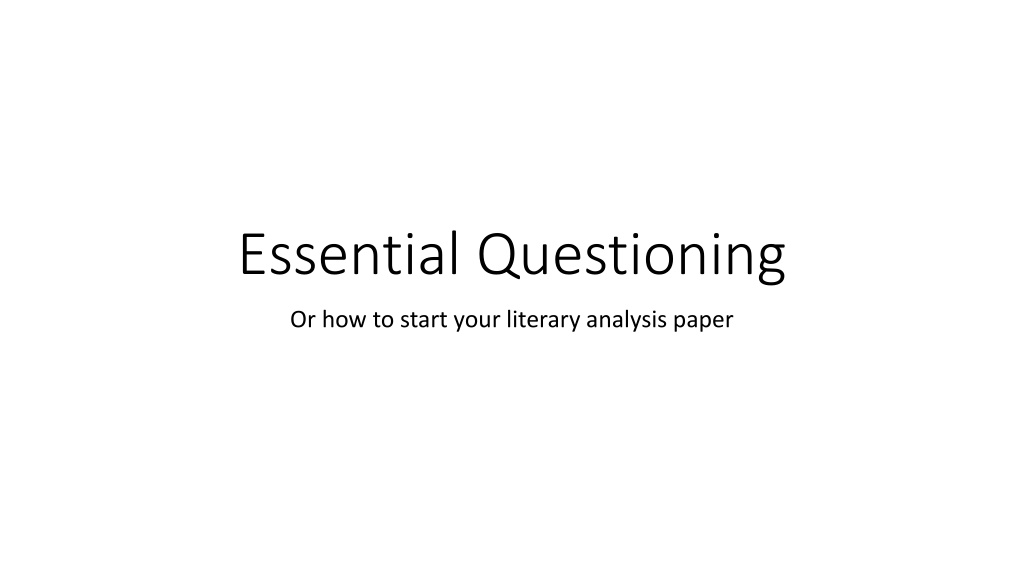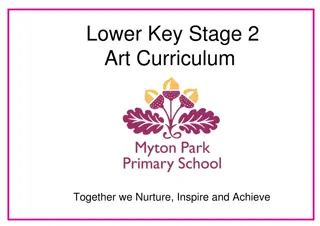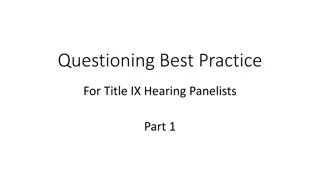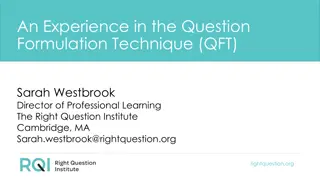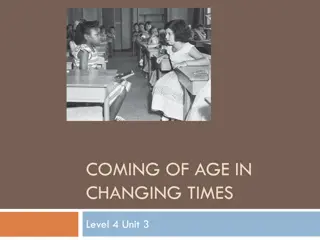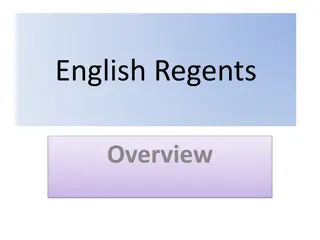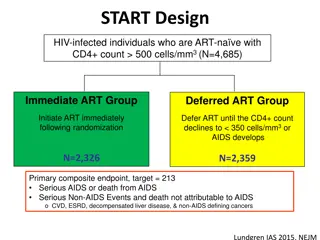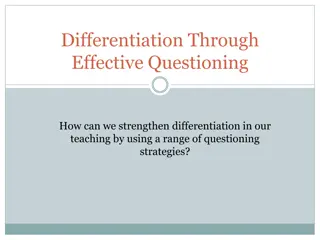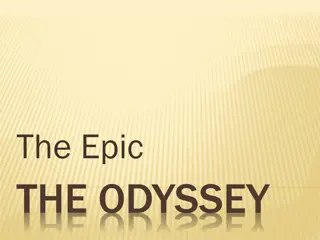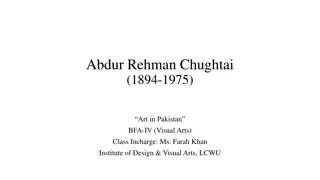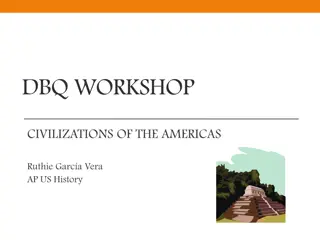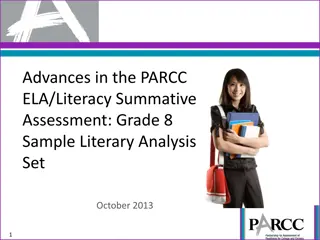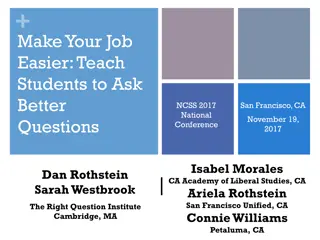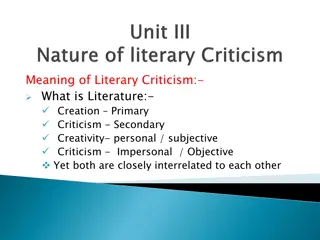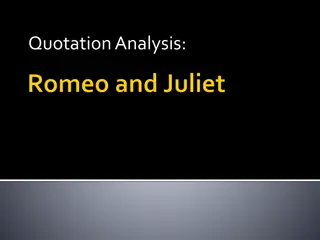Mastering the Art of Essential Questioning in Literary Analysis
Learn the essential steps to start your literary analysis paper by crafting thought-provoking essential questions. Understand the importance of inquiry, refine your questions, and delve into the heart of your literary exploration. Enhance your understanding of essential questions' significance in defining humanity and guiding profound thought processes.
Download Presentation

Please find below an Image/Link to download the presentation.
The content on the website is provided AS IS for your information and personal use only. It may not be sold, licensed, or shared on other websites without obtaining consent from the author. Download presentation by click this link. If you encounter any issues during the download, it is possible that the publisher has removed the file from their server.
E N D
Presentation Transcript
Essential Questioning Or how to start your literary analysis paper
Learning Goal: Write in Section 1 Students will be able to explain the process of writing their research-based literary analysis paper and will explore the basics of essential questions.
Scale: 4- I have an idea of an essential question I would like to explore for my literary analysis paper. 3- I understand essential questions and could formulate a list of potential questions for my paper. 2- I understand general essential questions but I am not sure how I could apply them to my paper. 1- I don t understand how essential questions would work in a literary analysis paper 0- What are essential questions? What paper?
To Begin: Write a question about one of the objects shown here. This needs to be a full question written in question format.
Step 2: Writing complex questions Look over your question and perhaps a neighbor s question. Can your question be answered with yes or no ? (i.e. Is there a box?) Is your question answerable with a short response? (i.e. What color is the tree?) Is your question asking to examine fact or opinion? (i.e. Is your object alive? Vs. Is your object fun?) Is your question open-ended to help uncover the essence of your object? (i.e. Do the colors of the hot air balloon represent the different cultures of America?) IF NEEDED: Revise your question to create an open-ended question that you would need to either research for the answer or explain using evidence.
Step 3: Now write a question that examines the relationship between two objects shown here. Try to make it an open-ended question.
The purpose: What you just practiced is the art of inquiry, asking questions to help us understand our world. This is the premise of writing a research paper, completing an experiment, or examining a literary work for theme.
Essential Questions Def: These are questions that touch our hearts and souls. They are central to our lives. They help to define what it means to be human. Most of the important thought we will conduct during our lives will center on such essential questions.
Focus of essential questions: The topics of: Life - Death - Marriage - Identity - Purpose - Betrayal - Honor - Integrity - Courage - Temptation - Faith - Leadership - Addiction - Invention - Inspiration. They pass the test of So what? They focus on matters of import.
Traits of essential questions: The question probes a matter of considerable importance. The question requires movement beyond understanding and studying - some kind of action or resolve pointing toward the settlement of a challenge, the making of a choice or the forming of a decision. The question cannot be answered by a quick and simple yes or no answer. The question probably endures, shifts and evolves with time and changing conditions - offering a moving target in some respects. The question may be unanswerable in the ultimate sense. The question may frustrate the researcher, may prove arid rather than fertile and may evade the quest for clarity and understanding.
Examples for Literature: How does the author create an overall sense of identity for their characters and speakers in a complex society? Why do certain characters act the way they act? Does she have an ax to grind, a political ideology, religious belief, or psychological disorder? What types of symbolism do you find in this novel? What do these objects really represent? How do characters react to and with these symbolic objects? Does the book address broader social issues? Does the author take a stance on, for example, anarchy versus capitalism? How is a particular culture or subculture portrayed?
Homework: As you continue to think about your novel(s), what are some topics that seem to stand out? What are some characters that seem to represent ideas? What are some recurring symbols, ideas, phrases, situations? How does location play into the results of the actions? WRITE DOWN ALL IDEAS YOU HAVE: You will write a SERIES of questions before settling on a topic. What makes you curious? What doesn t sit well with you when reading? What moments made you stop and think or made you feel? The topic exploration located on the BACK of your assignment sheet is required work over the next week and a half.
